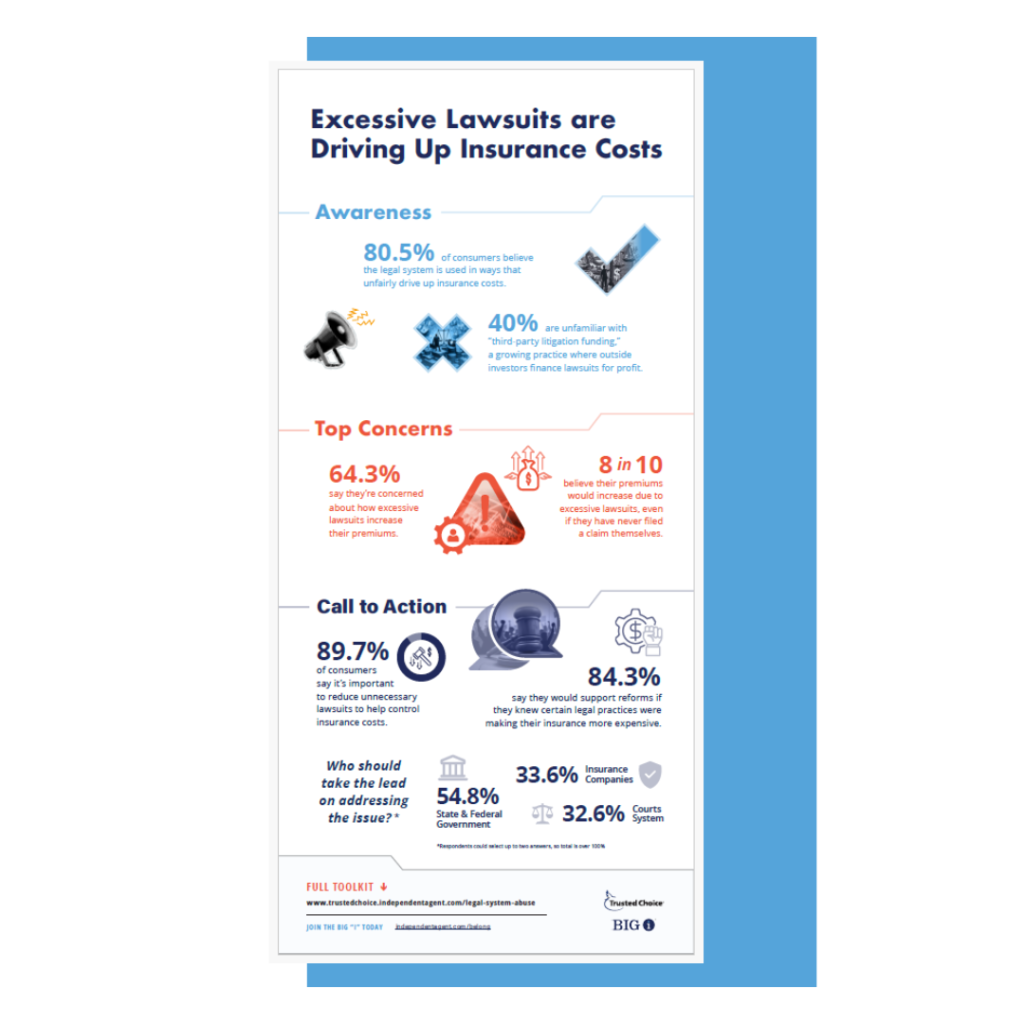Working with Adjusters to Get Claims Settled
Agency personnel have typically taken one of three approaches to agency claims handling – a hands-off approach – “It’s between you and the insurer”; an overly involved approach, focused on obtaining coverage no matter what; or a balanced, collegial approach where everyone wins. This article will focus on the last approach. Building relationships with adjusters and taking a consultative approach to client management can allow you to help your clients settle their claims and keep business on your books.
|
Author: Nancy Germond The core of claims management is communication and building solid relationships. If you work with a carrier frequently, or handle large accounts with dedicated adjusting teams, you’ll work with the same adjusters over time. Whether you’re inquiring on a property damage claim or a workers’ compensation injury, building a solid relationship with claims adjusters can help you move difficult claims toward settlement. Become a supportive agent, but don’t go overboard As you compete against larger brokers, you’ll find they have dedicated claims teams that help to manage stalled or difficult claims. If you don’t help your clients through stalled claims, your competitors may outpace you at renewal. While many agents say, “I don’t have a claims background,” there are other agents with solid coverage skills who are willing to wade in when coverage issues arise or when claims are at a standstill. When you can offer insight on claims management, it moves the client from a low-bid mindset to a mentality that says, “I don’t just hear from my agent at renewal, I value the services I receive from this agency.” On commercial accounts, consider setting Google alerts so that you receive an update if something newsworthy happens to that client. For example, during the pandemic, many service contractors found new revenue streams by pursuing other trades. You don’t want to be the last to know what your clients are doing. Everyone loves to talk about themselves and their business, according to one errors & omissions (E&O) expert. “Be nosey. Ask what all they do, what machinery and locations they have and how many people work for them. The more you can get a customer to talk, the more you will learn about their insurance needs. The more insurance you sell them, your chances of suffering an E&O claim diminish while your commissions increase. Never assume you know all there is to know about any of your customers.” Never fall for the “I want the same coverage I had from the other agent” trap. Do not just duplicate the coverage procured by your predecessor. Ask questions and make your own coverage suggestions. The building blocks of solid relationships with adjusters Our adjusters and claims managers are integral to keeping our clients happy. First, understand that most adjusters are highly trained college graduates, earn professional designations and are proud of their careers. If they received proper training, they will look for a way to provide coverage, not deny coverage. Giving them proper respect by addressing them by name, being cordial and promptly returning their phone calls or emails are building blocks in developing trust – the most important component in any relationship. Trust is only built over time with consistent behavior and an ability to admit when we may be wrong. Make some small talk before you jump into the problem. Perhaps ask a few questions.
On larger claims, set a diary to check with the adjuster or your insured to determine if the claim is moving forward. Use caution when advocating, however. Our E&O expert says this: “If you insert yourself into the claims process, you are guaranteeing you will be sued along with the carrier for an adverse claim decision.” Adjusters rarely feel the love When it comes to building relationships with adjusters, stand out among your agent peers.When possible, visit your adjusters with a box of candy or donuts for the entire claim unit. Depending on the carrier’s rules, a discussion over lunch may be more fruitful than a phone call or email. In fact, it’s safer to involve yourself in claims management with phone conversations rather than email to avoid a paper trail, according to one E&O expert. Some appropriate humor can lighten the mood. Praise jobs well done. Adjusters spend hours and hours on complex claims, and rarely hear an “attaboy” or “attagirl.” A letter to the branch manager praising an adjuster is indeed a rare thing. Stand out from the crowd by sending praises in writing, even if it’s only an email. This is the best thing you can do for an adjuster and his or her career. Be “that agent” who consistently treats adjusters with respect, even If you don’t necessarily agree with a coverage decision. (More on how to argue a coverage denial later.) Don’t be the agent who makes an adjuster’s hair stand up on the back of his or her neck when they recognize your phone number. Pareto’s Rule in claims handling Just like in life, 20% of your claims will cause 80% of your problems. Take a strategic role in claims management, picking your battles. By ensuring service standards on larger accounts before claims roll in, you’ll have a gauge by which you can measure the insurer’s performance. Service expectations for workers’ compensation claims Here are some best practices for workers’ compensation claims handling.
Assisting in payroll reporting One of the biggest stumbling blocks with your insureds is managing their payroll exposures and their experience modification factors on their workers’ compensation program. There are some tools available like ModMaster® that can help pinpoint emod problems, but one of the simplest things you can do is set a quarterly diary to contact your insureds about their payroll exposures. It’s also an opportunity to find out what’s going on in their business and to cross-sell. If you do this simple step, be consistent across insureds and be timely. Of you approach it sporadically or pick and choose which clients to remind, or miss a time, it can set you up for a professional liability claim. Especially since COVID, many service companies received a flood of new business and had higher payrolls. Others, such as retail establishments, lost employees and payrolls declined sharply. If you’re reminding your clients to update payroll figures, as well as annual revenue estimates, they’re much less likely to receive an expensive additional premium surprise at audit. Reviewing loss runs at least 90 days prior to renewal to look for missed subrogation opportunities, claims where adjusters can reduce or close reserves, and other issues can help you improve your clients’ e-mods and differentiate you from the pack. Service expectations on other types of property and liability claims Here are some best practices for other types of claims handling.
On all claims, you should have a voice in the carrier’s payment of frivolous/no liability claims, or when the carrier elects not to pursue subrogation. However, as frustrating as it is when a carrier takes the easy way out and decides not to pursue subrogation or pays a contested claim, that’s generally the right of the carrier. When you disagree with a claim denial During COVID-19, some carriers asked agents to deny claims. Never deny a claim on behalf of the carrier, even if they tell you to. We have several good articles on claim denials and a follow-up article on Insurance Illustrated. When you believe the insurer may not pay the claim, you may want to forewarn your insureds, but let the insurer be the “bad guy.” Don’t deny the claim yourself. If you disagree with a coverage decision, talk to the adjuster to see why he or she is denying coverage or issuing a reservation of rights letter. Make sure you understand the carrier’s position. If you think they’re wrong, review the coverage provision they rely on, and offer your input. If you can’t convince the adjuster that you’re right, you can always turn to the Big I’s Ask an Expert service. Many, many claim denials have changed due to input from our great team of coverage experts. Avoiding E&O claims arising from claims matters Document every conversation. Don’t rely on sticky notes, get those notes into your agency system at the time you talk to your insured. As insurance adjusters constantly hear from their supervisors, “If it’s not in the file notes, it didn’t happen.” When bad faith allegations arise, the claim may come after the carrier resolves or denies the claim. If you’re concerned that your insured may draw you in, put your E&O carrier on notice. Early involvement by the E&O carrier can help protect your interests. Finally, never apologize to your customer for a claim denial or an uncovered loss. It’s fine to say you’re sorry for their loss, but never make it sound like you’re apologizing for you or your agency’s handling of their account. Claims supervision is paramount Today, meetings and project management bury most claim supervisors and managers. They rarely physically pull a file. Instead, they rely on the adjusters’ notes and overview of documents in the file, which can be wildly scant or downright inaccurate. In fact, the file may have fallen off diary and be sitting, wondering when the adjuster is going to pay any attention to it. If you encounter a problem claim after talking to the adjuster, ask a supervisor to review the claim, or talk to the claim manager. If your agency doesn’t have a full-time claims advocate and your book is big enough, consider hiring a retired adjuster to review your claims. Today’s adjusters miss many, many subrogation opportunities. Add in the incorrect coverage decisions that occur due to understaffing and a herd of newly hired adjusters who didn’t get proper training before management places them on a high-volume desk, and the service you should receive on claims may not be where you expect it. A few final tips Almost every agency has vendors who arrive bearing gifts. These include restoration vendors, glass companies and more. While we want to trust people and marketing people often have great teeth and are very nice, it’s best to rely on vendors your carriers recommend. If you recommend a board-up company after a burglary, for example, and the insurer denies that portion of the claim because it’s a tenant-occupied building and the carrier asserts it’s the building owner’s responsibility to pay for emergency repairs, you’re in the middle of a mess. Talk to your claims department for a list of approved vendors. Best practice: Call the claim department and allow them to walk your insureds through their immediate post-loss needs. Don’t provide documents on claims without a discussion with your E&O carrier or incur any costs to help settle a claim. Don’t agree to a deposition with the carrier without your E&O carrier’s involvement. You can always reach out to your state association, as well. Successful advocacy depends on the timing. In the beginning to assist in reporting a claim, or perhaps when the carrier denies a claim, advocacy is usually in order. If the denial is proper, it’s inappropriate to advocate for coverage. If your client believes you’ve made a mistake, stop advocating and turn to your E&O carrier for support and input. Certainly, once the insured has filed suit against the carrier, stay out of the process lest you end up as a defendant. Final thoughts Poor claims service and claim denials are probably the biggest reasons insureds change agents. Your claims efforts and honing your consultative skills used cautiously can help you retain new clients and receive strong referrals from existing clients. To learn more about claims advocacy, visit this link on the Big I Guardian page. Find the webinar entitled, Avoiding E&O Exposure When Advocating for Customer Claims. A balanced, collegial approach to claims management will work in your favor every time. First published: June 17, 2022 Updated: September 23, 2024 _____________________________________________________________________________________________________________________________________ Copyright © 2024, Big “I” Virtual University. All rights reserved. No part of this material may be used or reproduced in any manner without the prior written permission from Big “I” Virtual University. For further information, contact jamie.behymer@iiaba.net. |









